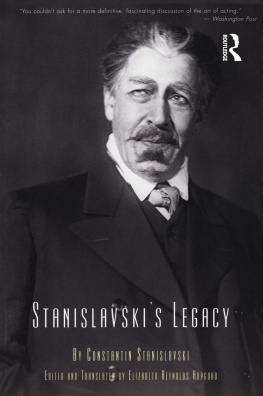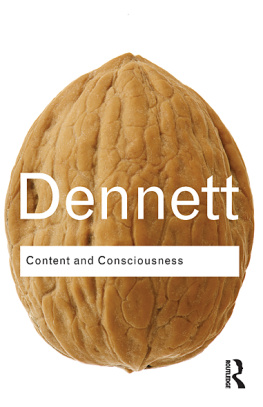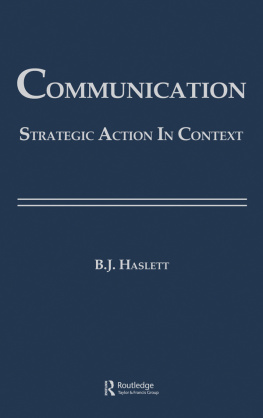BERGSON AND MODERN THOUGHT
Towards A Unified Science
MODELS OF SCIENTIFIC THOUGHT
A series of monographs and tracts
edited by
Roger Hahn, University of California, Berkeley.
Krzysztof Pomian, Centre National de la Recherche Scientifique, Paris.
Rne Thom, Institut des Hautes Etudes Scientifiques, Bures-sur-Yvette.
Volume 1
GLOSSOGENETICS
The Origin and Evolution of Language
edited by Eric de Grolier
Volume 2
THE SEMANTIC THEORY OF EVOLUTION
by Marcello Barbieri
Volume 3
BERGSON AND MODERN THOUGHT
Towards A Unified Science
edited by Andrew C. Papanicolaou and Pete A.Y. Gunter
Additional volumes in preparation
This book is part of a series. The publisher will accept continuation orders which may be cancelled at any time and which provide for automatic billing and shipping of each title in the series upon publication. Please write for details.
BERGSON AND MODERN THOUGHT
Towards A Unified Science
Edited by
ANDREW C. PAPANICOLAOU
Division of Neurosurgery
University of Texas Medical Branch, Galveston
PETE A.Y. GUNTER
Division of Neurosurgery
University of Texas Medical Branch, Galveston
First published 1987 by Harwood Academic Publishers
This edition published 2016 by Routledge
2 Park Square, Milton Park Abingdon, Oxon 0X14 4RN
711 Third Avenue New York, NY 10017
Routledge is an imprint of the Taylor & Francis Group, an informa business
1987 by Harwood Academic Publishers GmbH, Poststrasse 22, 7000 Chur, Switzerland. All rights reserved.
Library of Congress Cataloging-in-Publication Data
Bergson and modern thought.
(Models of scientific thought, ISSN 0736-5268; v. 3)
1. Bergson, Henri, 18591941. I. Papanicolaou, Andrew C. II. Gunter, P. A. Y.
(Pete Addison Y.), 1936-. III. Series.
B2430.B43B42 1987 194 8791
ISBN 3-7186-0380-2
Excerpts on pages 5960, 7071, 78, 8384, 8687, 90, 9399, 101103, 105106,
110111, 114115, 118119, and 122123 from Matter and Memory by H.L. Bergson,
London: George Allen & Unwin, Ltd., 1911.
No part of this book may be reproduced or utilized in any form or by any means, electronic or mechanical, including photocopying and recording, or by any information storage or retrieval system, without permission in writing from the publishers.
ISBN: 978-3-718-60380-0 (hbk)
CONTENTS
Introduction
Pete A. Y. Gunter
Andrew G. Bjelland
Jean Millet
James W. Felt
Introduction
Andrew C. Papanicolaou
Mili apek
Karl H. Pribram
Arthur L. Benton
Athanase Tzavaras
Introduction
Frank Barron
Charles R. Schmidtke
Mari Riess Jones
Robert G. Jahn and Brenda J. Dunne
Introduction
Henry P. Stapp
Oliver Costa de Beauregard
George Wald
Leonard Eslick
Charles Hartshorne
The work associated with the conference and the preparation of the present volume was supported by grants from the Moody Foundation and the Harris and Eliza Kempner Fund. We wish to thank the many people who contributed to the different phases of this double project, among them Dr. Ronald Carson, Dr. Elizabeth E. Gunter, Dr. Howard M. Eisenberg, Dr. David Loring, Mrs. Ann Lee and especially Ms. Beverly White on whose desk all the phone calls, letters and manuscripts converged haphazardly to emerge later in exquisite order.
Pete A. Y. Gunter, Ph.D.
Pete A. Y. Gunter teaches Philosophy at North Texas State University in Denton, Texas. A Yale Ph.D. in Philosophy (1963), Dr. Gunter has published numerous articles and reviews on process philosophy and the philosophy of science. His books include Bergson and the Evolution of Physics (University of Tennessee Press, 1969) and Henri Bergson: A Bibliography (Philosophy Documentation Center, 1974, 2nd Edition, Enlarged, 1986).
Andrew G. Bjelland, Ph.D.
Andrew G. Bjelland received a Ph.D. in Philosophy at Saint Louis University and currently teaches Philosophy at Seattle University, Seattle, Washington. He has published articles in philosophy journals on Bergson and Karl Popper and is currently working on a study of Matter and Memory to be titled Bergson s Metaphysics of Durational Embodiment.
Jean Millet, Ph.D.
Professor Millet teaches at the Faculte d Philosophic of the Institute Catholique de Paris. His publications include Gabriel Tarde et la Philosophic de lHistoire (1970) and Bergson et la Calcul Infinitesimal (1974). He has also been working on a study titled Ontologie de la Diffrence.
James W. Felt, Ph.D.
Professor Felt teaches in the Department of Philosophy at the University of Santa Clara. Dr. Felt received his Ph.D. in Philosophy from Saint Louis University and has published on philosophical and theological issues in such journals as Process Studies, International Philosophical Quarterly and Modern Schoolman. Since 1980 he has served as Editor of Logos: Philosophic Issues in Christian Perspective.
Andrew C. Papanicolaou, Ph.D.
Professor Papanicolaou is a research neuropsychologist at the University of Texas Medical Branch in Galveston. He began his training in the School of Philosophy in Athens and received his Ph.D. in 1978 from Southern Illinois University where he studied cognitive-physiological psychology and neurolinguistics. In addition to his research in brain electrophysiology and neuropsychology, he concerns himself with the history and philosophy of science.
Mili apek, Ph.D.
Professor Mili apek holds a Ph.D. in Philosophy from Charles University in Prague. He has taught at Griunell College and is currently Professor Emeritus, Boston University. Among his many writings are The Philosophical Impact of Twentieth Century Physics (D. Van Nostrand, 1961) and Bergson and Modem Physics (Boston Studies in the Philosophy of Science, 1971).
Karl H. Pribram, M.D.
Karl H. Pribram is a Professor of Neuroscience at Stanford University. Born in Vienna, he took his B.A. and M.D. degrees at the University of Chicago. During his ten year stay at Yale University he pioneered surgical techniques making it possible to explore the primitive limbic brain. Among his books are Plans and the Structure of Behavior (with George A. Miller and Eugene Galanter) and Languages of the Brain. He is a major defender of the holographic concept of the brain.
Arthur L. Benton, Ph.D., D.Sc.
Arthur Benton is Professor Emeritus at the University of Iowa in the Departments of Neurology and Psychology. He received his doctorate in Psychology from Columbia University and has taught and worked as a neuropsychologist in several universities worldwide. His extensive work spanning several decades has uniquely contributed to the establishment of modern clinical neuropsychology. Professor Benton was one of the founders of the International Neuropsychological Society






